After a hard day at work, most of us look forward to having a good night's sleep. However, you might wake up in the middle of the night perspiring heavily due to the dampness and humidity in your room. If you're wondering what's making your room that way, don't sweat it! We asked the professionals and have answers to share with you.
According to HVAC professionals, there are several reasons why your room feels damp and humid. However, the biggest culprit is the climate outside. Additionally, water leaking into your home, an air conditioning unit that's too big, and heavy use of appliances that use water are some of the other reasons.
In this article, we will get into more detail about what causes dampness and excess humidity not only in your room but the rest of the house. Additionally, we will discuss the negative effects these two factors bring to your home and ways to prevent these from happening. Continue reading to find out more.
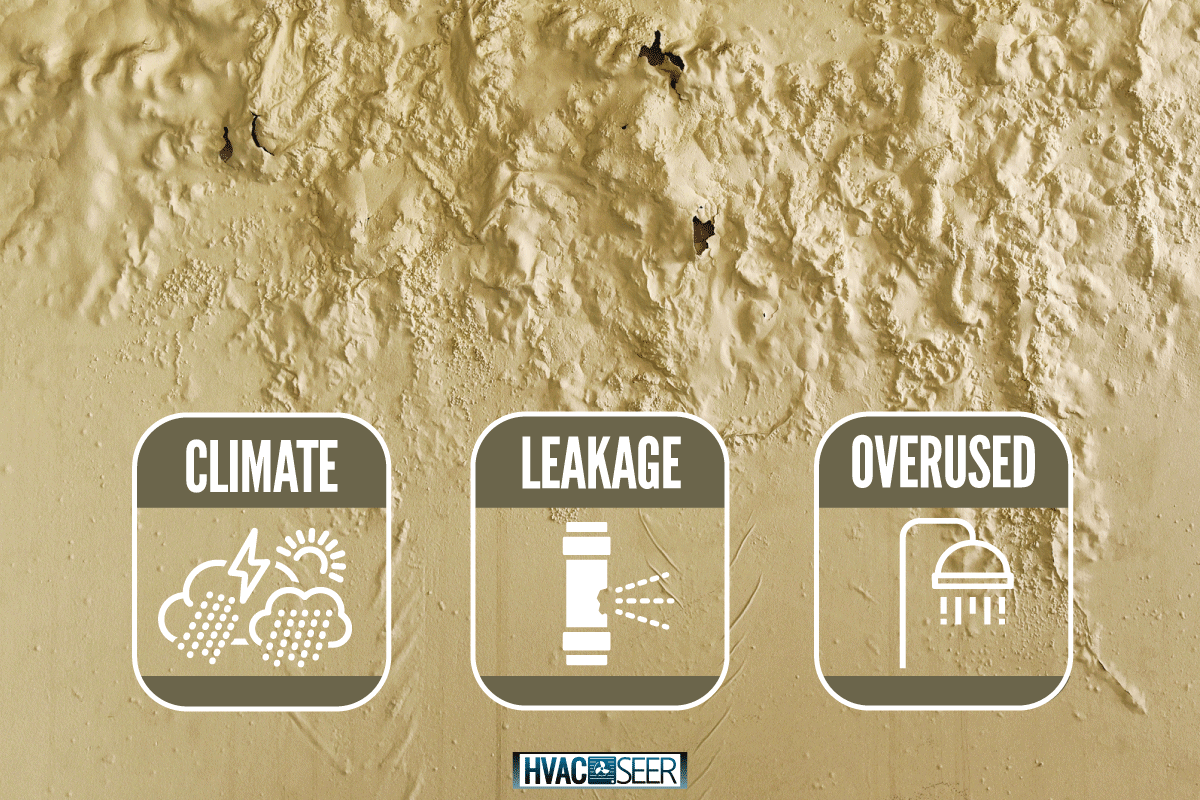
What Causes Dampness And Excess Humidity?
Several factors can contribute to dampness and excess humidity. Take note that these are just a few of the factors—not all of them. We will discuss each one below.
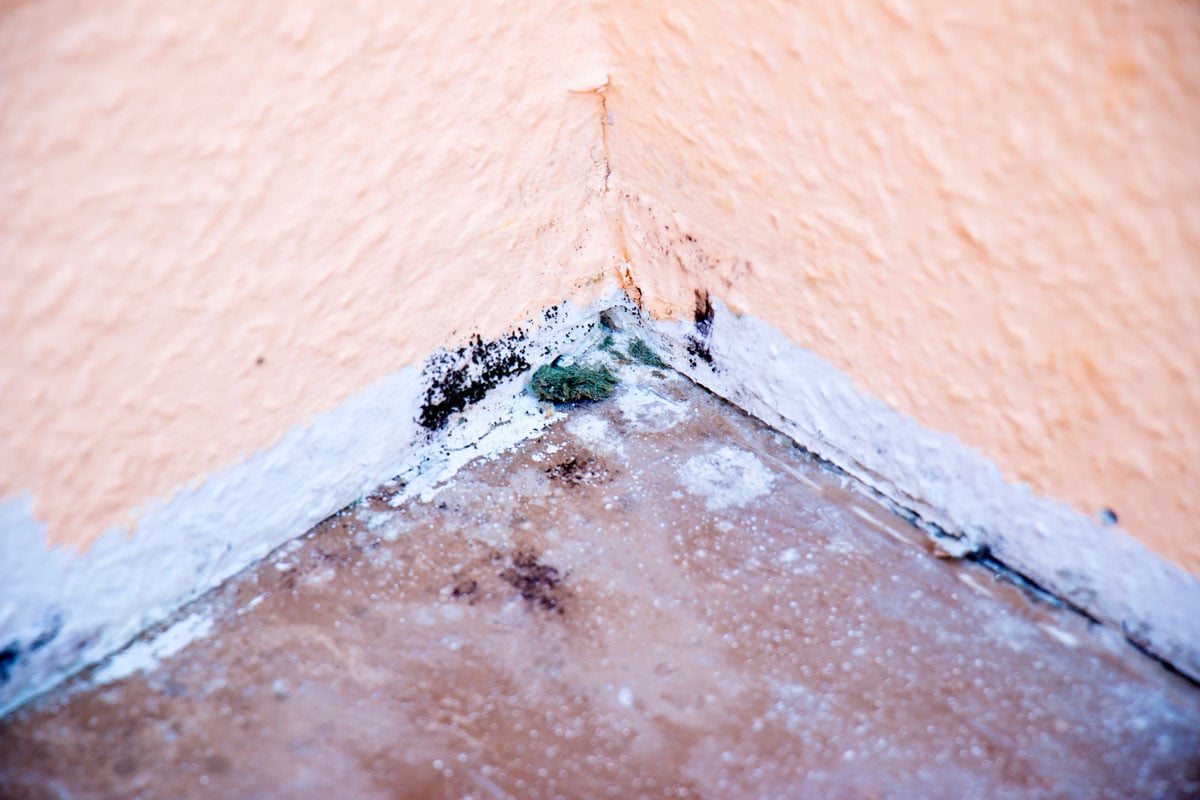
Outside Climate
The climate outside determines the humidity levels inside your home. This critical factor affects not only your room but your entire home. That's why it's important to weatherproof your home as much as possible.
An example of how the climate outside affects the humidity levels of your home is if you live in a subtropical area. The humidity levels would be higher than normal, thereby producing the perfect breeding ground for pests like mites, as well as encouraging the growth of mold and mildew.
In areas where the climate outside is always cold, there would be areas in your home that would feature damp spots. This also promotes the growth of mold and mildew and contributes to wet stains on the walls and wooden surfaces.
Water Leaking Inside
There are several ways for water to leak inside your home that cause excessive dampness. One way is via outside forces. Examples of these are rain, floods, and melted snow, among others.
Water can also leak via one of the pipes breaking, causing flooding and through condensation. Water can form on surfaces in between walls and ceilings, thereby causing property damage.
Oversized Air Conditioning Unit
You might think that an air conditioning unit helps in regulating humidity levels inside your room. And while that's true, it doesn't mean that using a larger unit would directly result in having better humidity levels.
On the contrary, the opposite happens. A bigger, more powerful air conditioning unit will cool a smaller room faster. A typical air conditioning units has a feature that allows it to shut off when it reaches the ideal temperature. This would cause the machine to shut down quicker than usual. Then, when the temperature starts rising again, the unit will turn on once more.
This cycle causes the air conditioning unit's evaporator coil not to work as intended. The purpose of this component is to remove the excess moisture in the air. However, before it's able to do that, the room would have reached the ideal temperature.
As a result, the room is cool, but there's plenty of moisture in the air. This creates a damp environment with high humidity. That's why it's important to consult an HVAC technician regarding the size of the air conditioning unit that you wish to install.
Overused Showers And Other Appliances
While it's great to have a warm shower, especially on a cold day, this can raise the humidity levels inside your home. Simple activities like boiling water or preparing broth on the stove also contribute to higher humidity levels. Dishwashers, washing machines, and other appliances that involve the use of water are also major contributors.
You might think this sounds absurd, but the moisture that these appliances produce lingers far longer in the air than you might think, so it's important to be aware when using these devices.
How To Tell If There's Damp And Excess Humidity
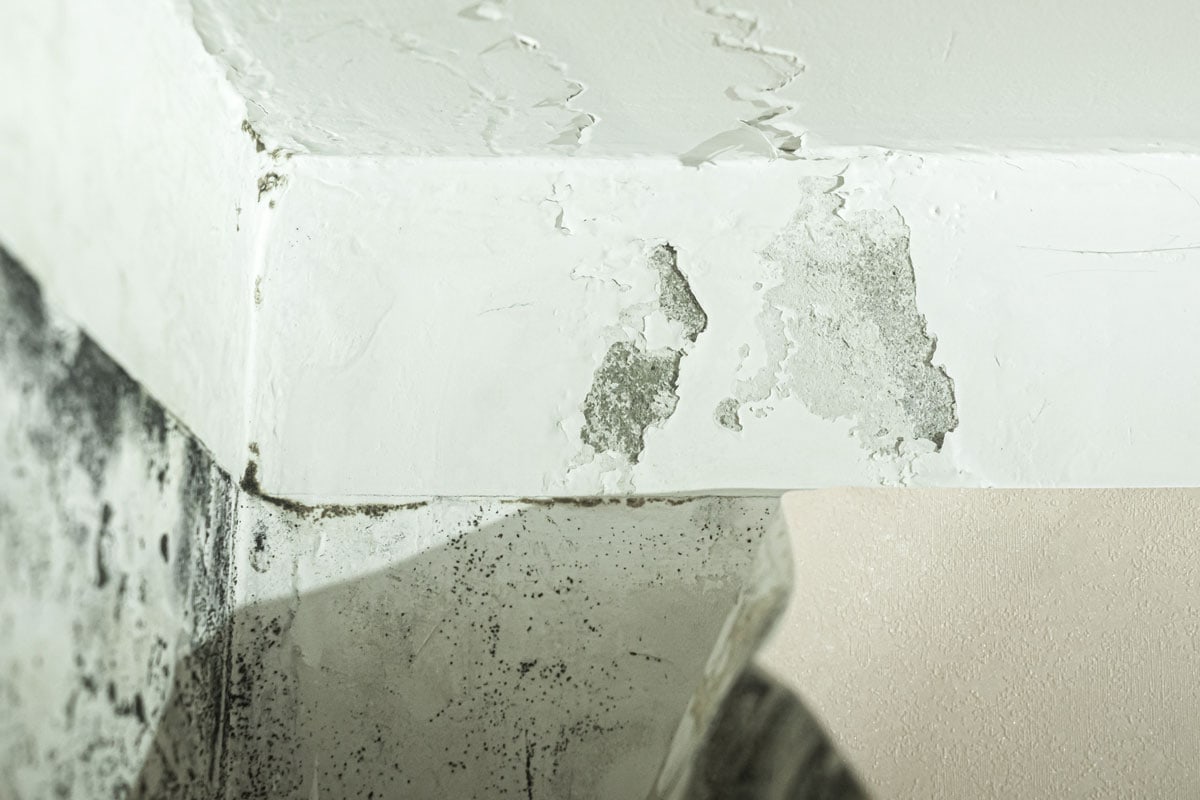
There are plenty of ways to tell if your room, and to an extent, your house is suffering from damp and excess humidity. So be on high alert for these signs.
The first is when you detect a musty smell in the air. This indicates that there's a part of your room that is damp. Failure to resolve this can lead to the growth of mold and mildew.
Another is wall stains caused by dampness and excess humidity. This may also result in the peeling of wallpaper and water stains on the walls. Cold walls are another symptom.
Ways To Prevent Dampness And Excess Humidity
We'll next discuss different ways of handling excess dampness and humidity. Remember, these are just a few examples—there are plenty of other ways out there.
Air Conditioning
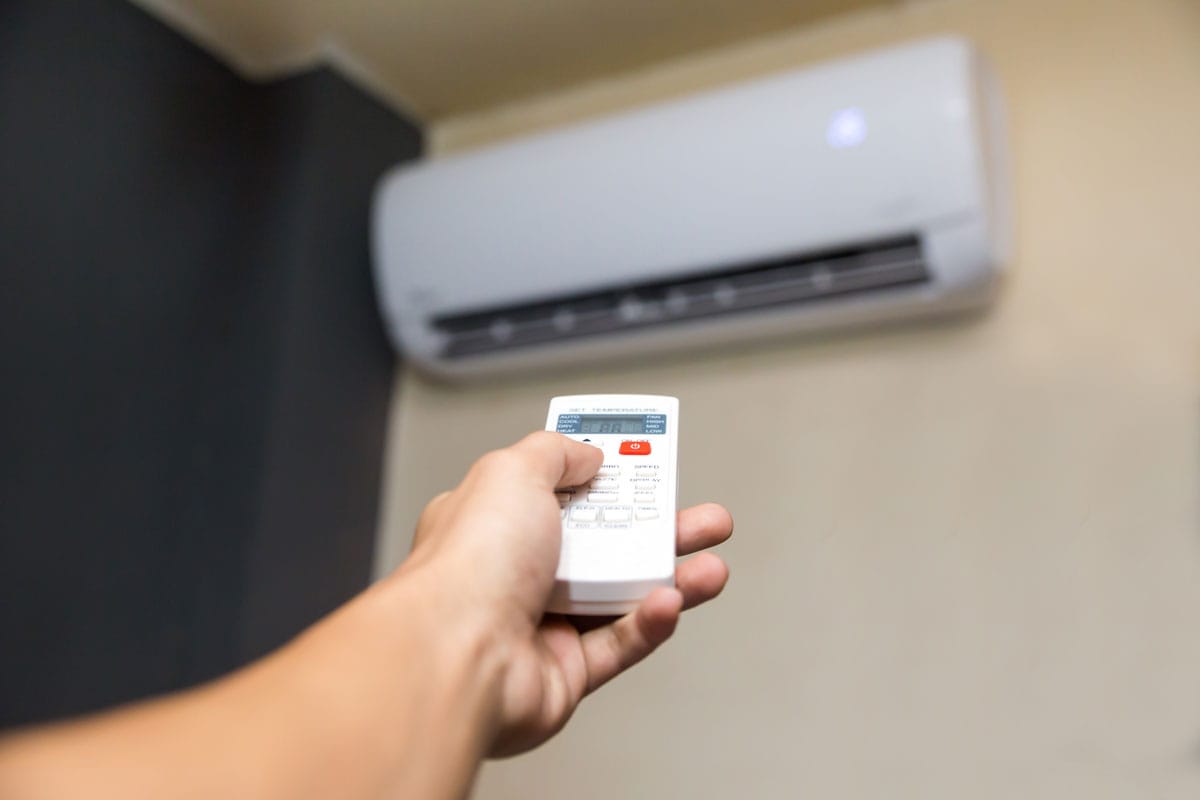
As long as the air conditioning unit is of the correct size for your home, it will do its work in reducing the humidity in the air. Warm air is great for retaining moisture, so with proper cooling from your air conditioning unit, the amount would decrease.
Not only that, but air conditioners nowadays can also serve to dehumidify a room. If you want to find out more, consider checking the link below:
How To Dehumidify A Room With Air Conditioner?
Check out this air conditioner on Amazon.
Exhaust Fans
Earlier, we talked about how showers and appliances that use water contribute greatly to indoor humidity levels. One way to combat this is by installing exhaust fans.
Using exhaust fans would serve as a relief point, pulling in the moisture in the air. Always make sure to turn these on whenever you're cooking or taking a warm shower.
Air Circulation
Introduce proper air circulation by opening the doors and windows. By doing this, you're allowing the excess moisture in the air to escape outside.
Additionally, make sure to keep the air vents open. Otherwise, the excess moisture won't properly escape outside the house.
Dehumidifier
If you wish to effectively regulate the humidity levels, consider buying a dehumidifier. Many homeowners have been investing in dehumidifiers over the years.
Dehumidifiers are small, compact, and not that expensive. Having one in your basement or attic is a step towards preventing interior damage from happening.
We have provided links to related posts on dehumidifiers. Learn more by checking out these articles:
Should I Put A Dehumidifier In My Attic?
Can A Dehumidifier Be Too Big For Your Home?
Check out this dehumidifier on Amazon.
How To Tell If It's Too Humid
The easiest way is by using a hygrometer. This device is what most meteorologists use in detecting the level of humidity in the air. Even if you're not a meteorologist, you can easily use one in the comfort of your home.
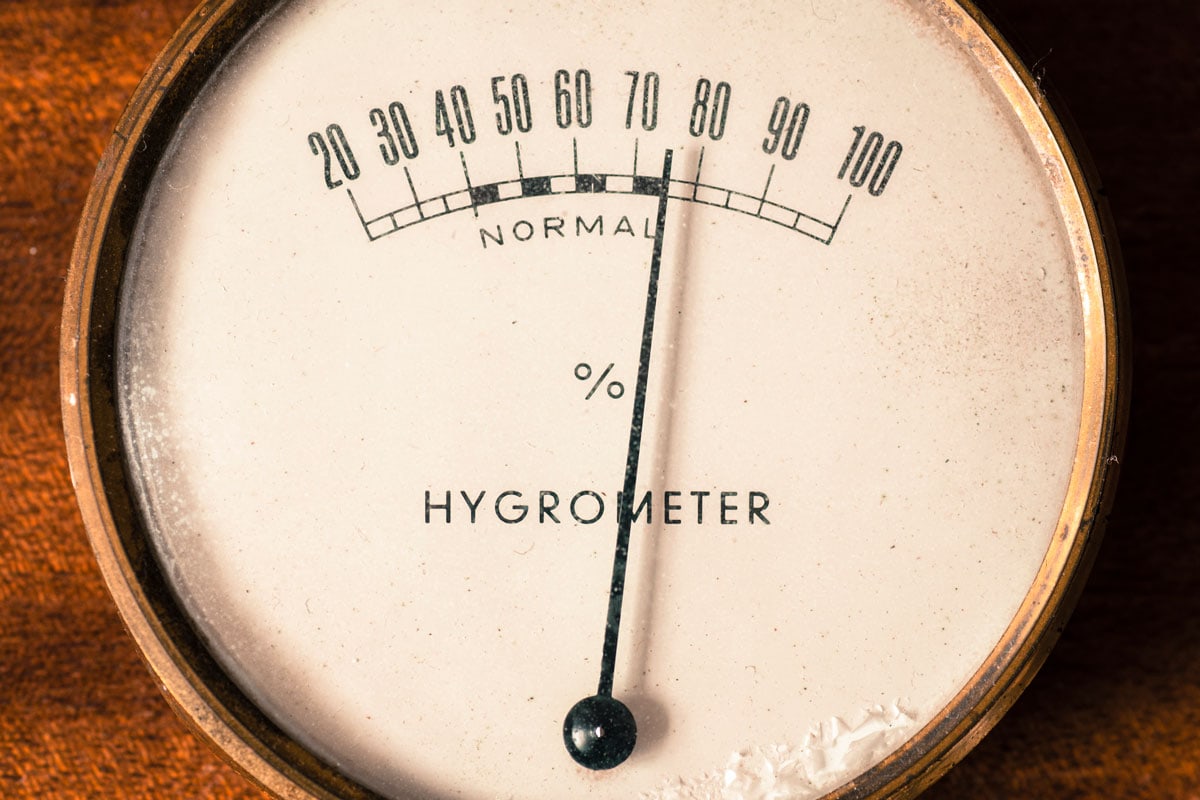
You should place the hygrometer in the central room, since you're trying to determine the average humidity inside your home. Keeping it far away from open windows, kitchens, and bathrooms is a must because of the excess humidity that those areas produce. Also, keep it away from corners where there's not enough airflow, as it would produce an inaccurate reading.
Research shows that the ideal humidity level should be between 30% and 50%. Humidity around those numbers would result in a comfortable atmosphere inside your home and prevent the growth of mold and mildew.
For further discussion about normal humidity levels inside a house, check out this post:
What Should The Humidity In My House Be?
Check out this hygrometer on Amazon.
In Closing
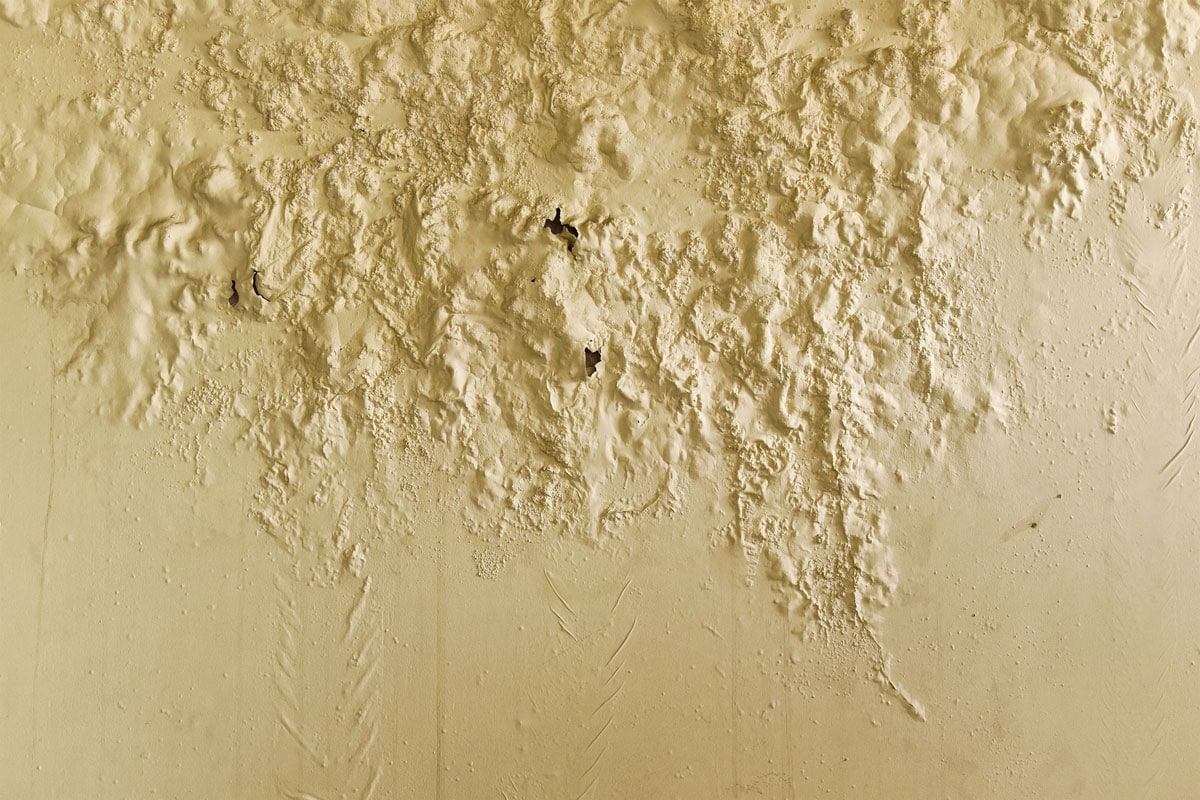
The main reason why you're experiencing dampness and excess humidity inside your room is due to the climate outside, although several reasons may come into play that you need to be aware of as well. That's why it's important to spot the symptoms as early as possible to remedy the issue.
If you found this article helpful and informative, consider checking out the links below. They delve deeper into the topic of humidity in certain scenarios. You definitely don't want to miss out on reading them as well.



